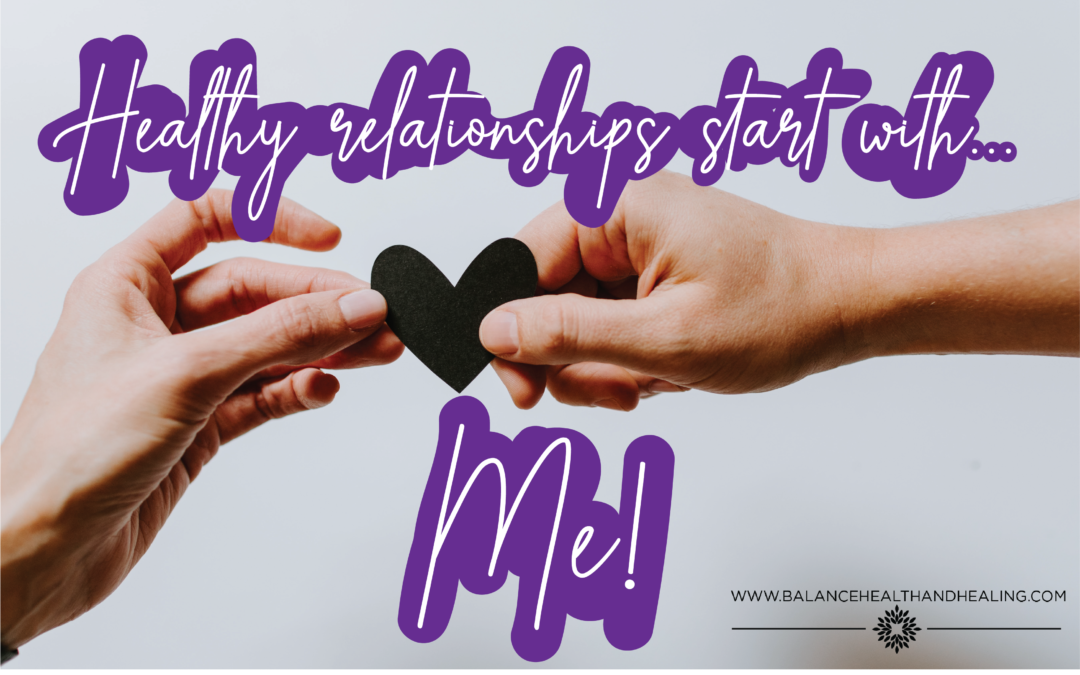When my children were younger, I tried to instill in them the concept of “kindness begins with me”! When unkindness cropped up among siblings, I would ask the offending party, “Who does kindness begin with?” and most of the time, the child would respond with, “me!”, albeit reluctantly. This practice made it into our family lore on the day that our spunky Gracie, at age 3, was picking on her older brother. I pulled her aside and reminded her, “Gracie, kindness begins with…?” to which she answered angrily, “BEN, you idiot!”
How often do we respond with the frustration my daughter once did when relationships aren’t going the way we’d like them to? How easy is it when times get tough to focus on the other person in a relationship and feel like the conflict is all their fault?
Instead of pointing the finger at the other person, try to slow down your own reactions and examine what is going on in the relationship. Healthy relationships start with you!
Boundaries
 When you look at a globe, political boundaries are clearly marked to designate where one country ends and another begins. Personal boundaries are similar in that they clearly mark limits. Boundaries are best when they are informed by your values- for example, if you have a value of sexual intimacy occurring within marriage, personal boundaries limiting physical contact outside of marriage would help you live within your values. When we are living a life where our decisions and actions align with our values, we are more likely to experience peace and contentment in life.
When you look at a globe, political boundaries are clearly marked to designate where one country ends and another begins. Personal boundaries are similar in that they clearly mark limits. Boundaries are best when they are informed by your values- for example, if you have a value of sexual intimacy occurring within marriage, personal boundaries limiting physical contact outside of marriage would help you live within your values. When we are living a life where our decisions and actions align with our values, we are more likely to experience peace and contentment in life.
Having clearly defined and communicated boundaries will benefit your relationships. A relationship without boundaries is primed for resentment. For example, a dating partner who is unable to say “no” may find themselves resentful of their partner when they are devoting time watching Netflix instead of studying for an exam. Setting and enforcing a boundary can be as simple as saying something like, “I would love to watch something another night, but tonight, I need to study for my accounting exam”.
Conflict Resolution
When conflict arises in a relationship, remember that navigating these types of situations is an important opportunity. A wise friend once shared with me her view that in dating, the couple is writing their marriage contract- they are carefully discovering and negotiating what is appropriate for the future. This is a time to clarify values, set expectations, and define limits within the relationship. In times of conflict, it can also be an opportunity for growth- understanding of another person, developing skills, and gaining insight into self.
friend once shared with me her view that in dating, the couple is writing their marriage contract- they are carefully discovering and negotiating what is appropriate for the future. This is a time to clarify values, set expectations, and define limits within the relationship. In times of conflict, it can also be an opportunity for growth- understanding of another person, developing skills, and gaining insight into self.
When there is conflict, practice problem solving skills. It is wise to use these experiences to develop skills in listening, being thoughtful versus reactive, trying to understand another’s point of view, and sharing your own perspective. Teach these skills to your children, through word and example.
Nurturing Bonds
No relationship will thrive without patient dedication to nurturing the bond between individuals. Make sure you are prioritizing relationships with the important people in your life. These moments can act as insulation when the going gets rough! When a relationship is all work and no play, we can quickly feel frustrated and resentful. Make sure you are really taking the time to enjoy your loved ones. Go for a walk, take time to listen about their day, develop a skill or hobby together, share funny memes you see on the internet. These little moments of life are the good stuff.
We love the story of our little three-year-old Gracie in part because now, nearly ten years later, she has blossomed into a wonderful and loving teen who learned how to reign in her temper and treat others with kindness. Kindness, and healthy relationships- really do begin with us!

